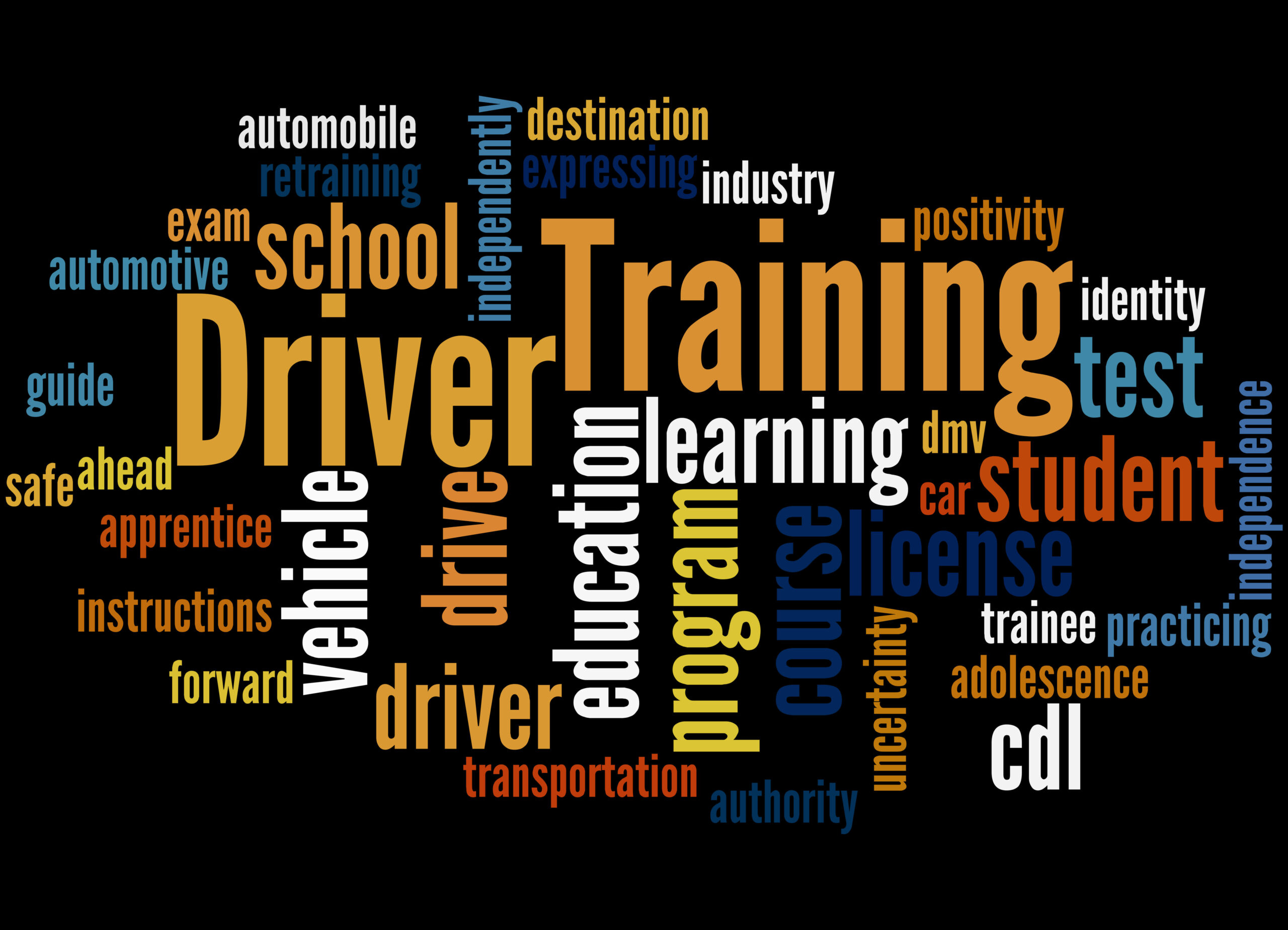Explore the benefits of hosting workshops and educational events to showcase your driving school's expertise.
At IMPROVLearning, we take pride in assisting in driving schools to achieve lasting success and continuous growth. Today, we’re excited to delve into the tremendous impact of hosting workshops and events, providing you with valuable insights to attract new learners and elevate your driving school.
Summer is coming to an end, and, as any driver training professional knows, demand for your courses is slowing down. So, why not consider some innovative new ways to drive business? Fall is around the corner, and as families and their new drivers make plans for driver education, you have a fantastic opportunity to connect with your local community. Hosting engaging workshops or educational events can be a great way to share essential driving knowledge and showcase the warm and supportive learning environment your school provides.
Attracting new students, however, is but one of many benefits! These events can cultivate community and allow potential students to interact with your instructors. There’s a lot of value in providing firsthand knowledge of your school’s unique and effective approach to education and showcasing your commitment to safety and excellence.
You’ll instill trust and familiarity in students and their families. Yours is a school that your community can rely upon, and an event is a wonderful and exciting way to demonstrate it.
You can expand your school’s reach and foster positive word-of-mouth referrals by piquing curiosity and interest. Creating a lasting impact on your local community will undoubtedly contribute to your driving school’s growth and success.
Let’s look at some strategies you can use to create an engaging workshop that showcases your school:
Understand Your Audience
Before planning a workshop, take a moment to understand your target audience. Are you catering to nervous beginners, seasoned drivers looking to enhance their skills, or maybe even a group of parents looking for guidance on ways to help their children become the safest possible drivers? Tailoring your workshop topics to address your audience’s specific needs and interests will ensure maximum engagement and impact.
- Conduct Audience Research: Start by conducting thorough research on the target audience for your workshop. Gather information about their skill levels, experience, and motivations for attending. This could involve surveys, interviews, or analyzing existing data to gain insights into their needs and interests.
- Segment Your Audience: Once you have gathered the necessary information, categorize your audience into different segments based on their characteristics and preferences. For example, you might have separate segments for beginners, experienced drivers, and parents. This will help you tailor the workshop content and activities to address the specific needs of each group effectively.
- Customize Workshop Topics: With your audience segments identified, design workshop topics and activities that align with their respective requirements. For beginners, focus on building foundational driving skills and confidence. For experienced drivers, offer advanced techniques and strategies to enhance their driving abilities. For parents, provide guidance on fostering safe driving habits in their children. Customizing the content will ensure maximum engagement and relevance for each participant, leading to a more impactful workshop overall.
Trending Topics Drive Curiosity
Keep your finger on the pulse of the driving industry and identify current trends and topics that can captivate interest. Whether it’s the rise of electric vehicles, the integration of advanced driver-assistance systems, or the latest safety or municipal regulations, focusing on these trending subjects will engage the curiosity of attendees and make them more likely to attend.
- Stay Informed on Industry Trends: Dedicate time to staying up-to-date with the latest developments in the driving industry. Follow reputable sources, such as industry publications, news websites, and expert blogs, to identify trending topics that are generating curiosity and discussions among driving enthusiasts and professionals.
- Select Compelling Trending Topics: Once you’ve identified the trending subjects, carefully choose the most captivating ones that align with the interests of your target audience. Consider the relevance of each topic to the attendees and prioritize those that are likely to spark curiosity and generate meaningful discussions during the workshop.
- Integrate Trending Topics Into Workshop Content: Incorporate the selected trending topics into your workshop content strategically. Create sessions, discussions, or activities that revolve around these subjects, emphasizing their significance and potential impact on the driving industry. By doing so, you’ll attract attendees who are eager to explore and learn more about the latest developments, ultimately increasing the workshop’s appeal and attendance.
Safety First, Always
Speaking of safety, you know that in the driving industry, safety is paramount. Make it a priority to include workshops demonstrating safe driving practices, defensive driving techniques, and strategies to avoid common collisions. Highlighting your commitment to safety will not help make more responsible drivers but also garner goodwill within the community.
- Emphasize Safety Education: Ensure that safety remains the central focus of your workshops. Develop sessions dedicated to educating participants about safe driving practices, emphasizing the importance of following traffic rules, and understanding the potential consequences of reckless behavior on the road.
- Incorporate Defensive Driving Training: Integrate comprehensive defensive driving training into your workshop agenda. Teach attendees essential defensive driving techniques, such as maintaining a safe following distance, anticipating potential hazards, and staying vigilant in challenging driving conditions.
- Address Common Collision Scenarios: Design workshops that address common collision scenarios and provide strategies to avoid them. Analyze prevalent causes of accidents, such as distracted driving or failure to yield, and offer practical tips on how to prevent such incidents. Empowering participants with knowledge on accident prevention will not only enhance their driving skills but also contribute to safer roads for everyone.
Amp Up the Interactivity
Don’t just settle for a lecture-style workshop; engage your audience through interactive elements. Incorporate quizzes, practical driving simulations, and hands-on demonstrations. Remember, people learn best when actively participating as they experience the knowledge in action.
- Integrate Quizzes and Assessments: Break away from a traditional lecture format by including quizzes and assessments throughout the workshop. These interactive elements will encourage active participation and help reinforce key concepts. Create both verbal and written quizzes to cater to different learning styles and provide immediate feedback to participants.
- Utilize Practical Driving Simulations: Enhance the learning experience by incorporating practical driving simulations. Utilize driving simulation software or physical driving simulators to allow attendees to apply their knowledge in a safe and controlled environment. This hands-on approach will deepen their understanding of real-world driving scenarios and build confidence in their abilities.
- Conduct Hands-On Demonstrations: Provide hands-on demonstrations of important driving techniques and safety practices. Invite participants to actively participate in demonstrations, allowing them to feel the impact of applying these skills firsthand. Hands-on learning helps solidify learning outcomes and ensures a memorable and engaging workshop experience for all attendees.
Leverage Digital Platforms
As we’ve all learned in the last few years, there’s no replacement for face-to-face interaction. An in-person event can have a profound impact on your prospective customers. However, consider hosting online workshops or webinars to make your expertise available to a broader audience. Utilize social media, email marketing, and your driving school’s website to promote these events. Embracing the power of technology to reach aspiring drivers from different locations enhances your reputation as a forward-thinking driving school.
- Plan Online Workshops and Webinars: Extend your reach beyond in-person events by organizing online workshops and webinars. Identify relevant topics that align with your expertise and cater to the interests of your target audience. Utilize platforms like Zoom, Microsoft Teams, or other webinar hosting services to facilitate these virtual events.
- Promote Through Digital Channels: Leverage the power of digital platforms to promote your online workshops and webinars effectively. Utilize social media channels, such as Facebook, Instagram, and Twitter, to reach a broader audience. Create eye-catching graphics, engaging posts, and informative content to generate interest and encourage registrations.
- Optimize Your Driving School’s Website: Ensure that your driving school’s website is up-to-date and user-friendly. Create a dedicated section to showcase upcoming online workshops and webinars, providing detailed information about the topics, schedules, and registration process. Use email marketing to notify your existing contacts about the upcoming events and encourage them to share the information with others.
Collect and Share Testimonials
Encourage participants to share their experiences and feedback after each workshop. Positive testimonials from satisfied attendees can work wonders for your school’s reputation. Share these testimonials on your website, social media, and newsletters to build trust and credibility among potential students and their families.
- Implement Feedback Collection Mechanism: Set up a systematic feedback collection process after each workshop. Provide participants with evaluation forms or online surveys where they can share their experiences and thoughts about the workshop. Encourage them to provide specific details about what they found valuable and any suggestions for improvement.
- Request Testimonials from Participants: Reach out to workshop attendees who expressed satisfaction with the experience and request them to provide written testimonials. Ask for permission to use their names along with the testimonials to add credibility. Highlight the impact of the workshop on their driving skills and overall perception of the school.
- Showcase Testimonials on Multiple Platforms: Utilize various platforms to showcase the collected testimonials. Create a dedicated section on your website where visitors can read authentic reviews from past attendees. Share these testimonials on your school’s social media pages, highlighting different aspects of the workshop and its positive effects. Incorporate snippets of the testimonials in newsletters and marketing materials to build trust and attract potential students and their families.
Offer Exclusive Takeaways
Give participants exclusive takeaways to make your workshops memorable and valuable. These materials could be handouts, e-books, or access to online resources. These materials will serve as a reminder of your expertise long after the workshop ends and encourage attendees to recommend your school to others.
- Create Valuable Handouts: Prepare informative and visually appealing handouts that participants can take home with them. These handouts should summarize key points covered in the workshop, provide additional tips, and act as a quick reference guide. Consider using graphics and diagrams to enhance understanding and retention.
- Develop Educational E-Books: Offer participants exclusive access to educational e-books related to the workshop topics. These e-books could delve deeper into specific aspects of driving, provide advanced techniques, or address frequently asked questions. E-books serve as valuable resources that participants can refer to whenever they need further guidance.
- Provide Access to Online Resources: Extend the learning experience by providing attendees with access to online resources such as video tutorials, interactive quizzes, or supplementary articles. These resources can be hosted on your driving school’s website or through a dedicated learning platform. Offering a range of engaging online materials reinforces your school’s commitment to continuous learning and positions you as a reliable source of knowledge within the driving community.
Follow Up and Stay Connected
Don’t let the relationship end with the workshop. Keep the momentum going by following up with attendees through email newsletters or social media updates. Share relevant articles, upcoming event details, and occasional driving tips to keep them engaged and eager to attend future workshops.
- Send Personalized Follow-Up Emails: After each workshop, send personalized follow-up emails to attendees, expressing gratitude for their participation and feedback. Include a brief summary of the workshop highlights and a link to the workshop materials or resources. Use this opportunity to ask for any additional feedback or suggestions for future workshops.
- Maintain an Informative Newsletter: Keep attendees engaged by sending regular email newsletters. Share relevant articles related to driving safety, industry trends, and updates. Highlight success stories or testimonials from past participants to showcase the impact of your workshops. Include teaser information about upcoming events to pique their interest and encourage continued attendance.
- Engage through Social Media: Stay connected with attendees through social media platforms. Share bite-sized driving tips, interesting facts, and workshop highlights. Encourage discussions and respond to comments or questions promptly. Utilize live video sessions or Q&A sessions on social media to provide valuable insights and further nurture the relationship with your audience.
Keep Evolving
The driving industry constantly evolves with new technologies, laws, and practices. Staying current with the latest developments is crucial. Continuously research and upgrade your workshop content to provide cutting-edge insights and maintain a competitive edge.
- Stay Updated with Industry Changes: Regularly monitor industry news, updates, and advancements related to driving technologies, regulations, and best practices. Subscribe to reputable driving publications, attend industry conferences, and follow influential figures to stay informed about the latest developments.
- Conduct Periodic Content Reviews: Schedule regular content reviews for your workshops to assess their relevance and accuracy. Identify areas where updates are necessary, and ensure that the workshop materials reflect the most current information available. Incorporate new case studies, statistics, and examples to support your teaching points effectively.
- Integrate Emerging Trends and Innovations: Embrace emerging trends and innovations within the driving industry by integrating them into your workshop content. For example, if there’s a significant shift towards electric vehicles or autonomous driving, ensure that your workshops cover these topics comprehensively. Providing cutting-edge insights will attract participants who are eager to learn about the latest advancements and maintain your driving school’s competitive edge.
By showcasing your driving school’s expertise through these well-crafted workshops, you’ll not only elevate your brand but also foster a community of skilled and responsible drivers, and that community will remember. Becoming a valuable resource that families can rely upon throughout their driving journey will position your school at the top of their minds for all things safer driving.
Liam Hoch researches and writes about safe driving for DriverZ.
Having been a passenger in multiple near-catastrophic vehicle collisions, Liam knows first-hand the dangers of distracted, reckless, and unsafe driving.
Passionate about our core principles of helping to make safer drivers and, ultimately, saving lives, Liam stays at the forefront of driving safety innovation and research.


















